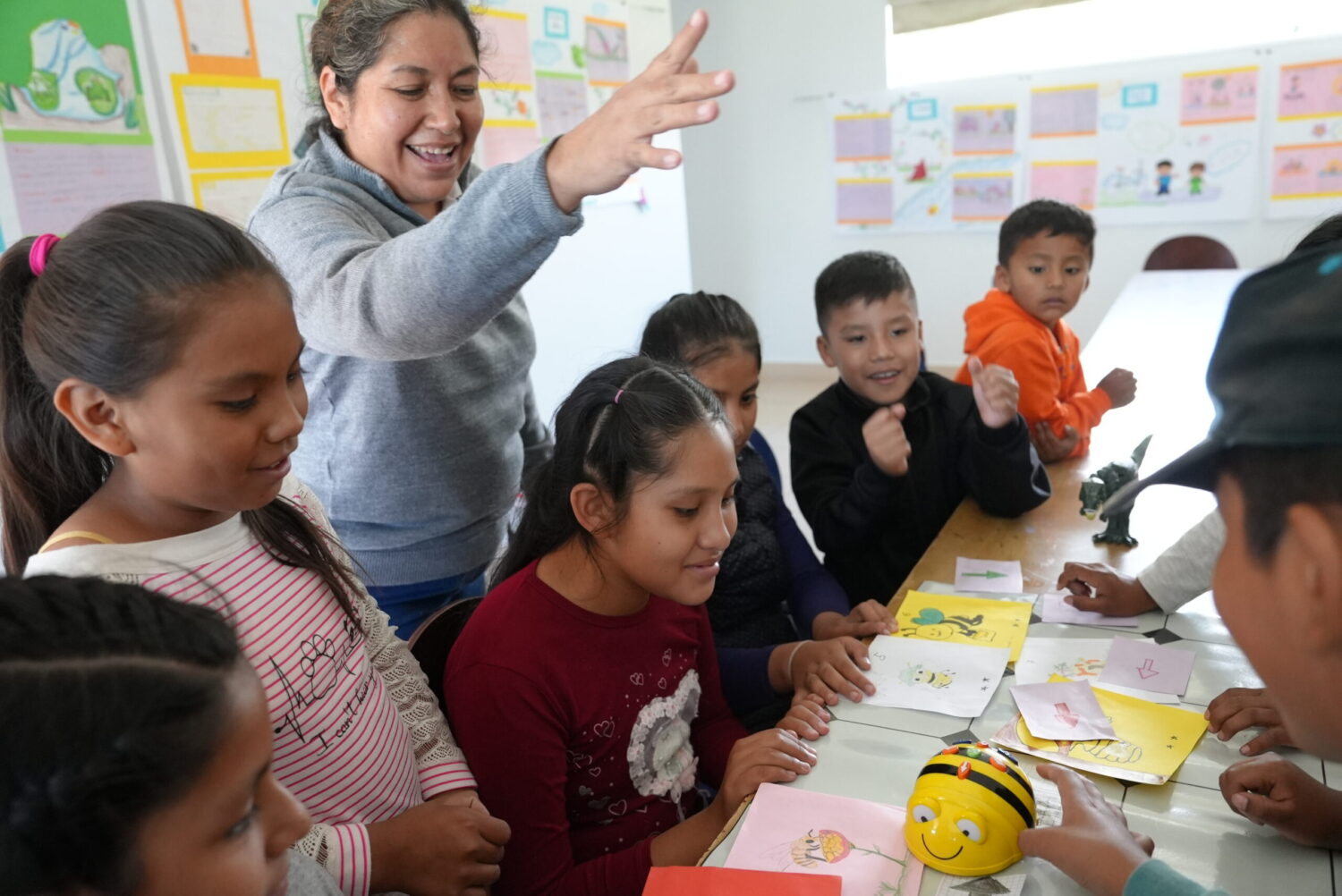
22/03/2025
In Bolivia, education is more than a national issue—it’s a driver of social transformation. Since the “Avelino Siñani – Elizardo Pérez” law of 2010, the country has undertaken an ambitious reform based on inclusion, interculturality, and equity. But in practice, major challenges remain: geographic disparities, uneven pedagogical quality, and limited ongoing teacher training.
This is where foundations play a decisive role, especially the Simón I. Patiño Foundation. With over 50 years of historical and local presence, it works at the heart of communities to complement public efforts. Through innovative approaches, close engagement with communities, and measurable outcomes, it shows that education can be a tool for empowerment—even in the most remote areas.
The education reform launched in 2010 with the “Avelino Siñani – Elizardo Pérez” law marked a major turning point in Bolivia’s schooling history. Driven by the recognition of Indigenous cultures and social inclusion, it enshrines the principles of multilingualism, interculturality, and equity into law. The Bolivian school system is no longer just about instruction—it must reflect the diversity of its peoples and address systemic inequalities.
Since implementation, notable progress has been made. The number of teachers has increased significantly, public investment in school infrastructure has grown, and access to primary education has improved markedly. Textbooks in Indigenous languages have been produced, and curricula adapted to each region have been developed.
Despite this progress, major challenges remain. Territorial inequalities persist: rural areas and Indigenous communities still struggle to access quality education. Initial and continuing teacher training often fall short of the requirements for contextualized teaching. And the link between education and the labor market remains weak, especially in technical and vocational tracks.
In this context, complementary actors like foundations become essential for experimenting, adjusting, and accelerating change on the ground. Their agility, local presence, and capacity for innovation make them valuable allies in reform.
Improving the education system cannot rest solely on the State. In Bolivia, foundations play a strategic role as catalysts: they step in where public policies struggle to move quickly, innovate, or tailor solutions.
Their complementarity is essential. Thanks to their operational flexibility, they can test new pedagogical approaches, train teachers more specifically, and establish a presence in remote areas sometimes overlooked by major reforms.
More than that, foundations bring both human and methodological added value. They work hand in hand with local communities, co-develop programs with education stakeholders, and closely monitor outcomes. Their commitment goes beyond service provision: they operate within a framework of lasting transformation.
Among them, the Simón I. Patiño Foundation stands out for the scale, coherence, and impact of its work for over fifty years.
Since 1968, the Simón I. Patiño Foundation has made education one of its core pillars. Convinced that every child, every teacher, and every community deserves the tools to grow, it works with consistency and high standards alongside the Bolivian educational system. Its commitment: to create innovative and inclusive learning environments, both in cities and the most remote regions.
One of its key contributions is the continuous training of teachers. Each year, the Foundation offers development programs focused on active teaching methods: flipped classrooms, project-based learning, intercultural pedagogy. These trainings, designed with local and international experts, enable teachers to adapt their instruction to students’ linguistic, cultural, and social contexts. In 2023, over 800 teachers took part, directly impacting thousands of children.
On the ground, the Foundation also works closely with rural communities. In the Yungas, it leads informal education programs and provides free workshops in rural boarding schools under the Cochuna Project. These spaces become centers of knowledge, shared living, cultural expression, and identity reinforcement. Children learn about sustainable agriculture, math applied to their daily lives, and visual arts as a path to empowerment.
This educational approach is complemented by a strong focus on job readiness. The Foundation has implemented technical training and micro-entrepreneurship modules for youth nearing the end of their studies. The goal: for education to lead to genuine opportunities for economic autonomy. In Cochabamba, for instance, more than 200 young people were trained in project management, IT maintenance, or agroecological techniques in 2022.
What sets the Patiño Foundation apart is its ability to link educational innovation, local grounding, and measurable results. Each project is designed with long-term impact in mind, in dialogue with beneficiaries and education authorities. Every action seeks not only to reduce inequalities but also to valorize local knowledge.
Where others see challenges, the Foundation sees levers for action. And it acts—with rigor and conviction.
Far from abstract rhetoric, foundations transform reality—one school, one teacher, one student at a time. In Bolivia, the action of the Simón I. Patiño Foundation can be measured on the ground: reducing gaps between rural and urban areas, improving teaching quality, and better preparing youth for professional life.
In the rural communities of the Yungas, teachers trained by the Foundation report increased school attendance and more active student participation. Families speak of a shift in mindset: “Our children now dream of becoming teachers, of creating, of staying here and making a difference.”
Beyond the numbers, a dynamic of trust and empowerment is taking root. Thanks to technical training, young Bolivians are launching their own agricultural or craft-based micro-projects. And each individual success becomes a collective promise: the promise of a fairer, more sustainable future.
Education is a constant endeavor, a horizon to be built day by day. In Bolivia, foundations like the Simón I. Patiño Foundation play a driving role in realizing public policy ambitions. Their ability to innovate, remain rooted in local realities, and achieve measurable results makes them essential allies.
Supporting their work means investing in the future of children, families, and entire communities. Learn how to support the educational efforts of the Simón I. Patiño Foundation in Bolivia.